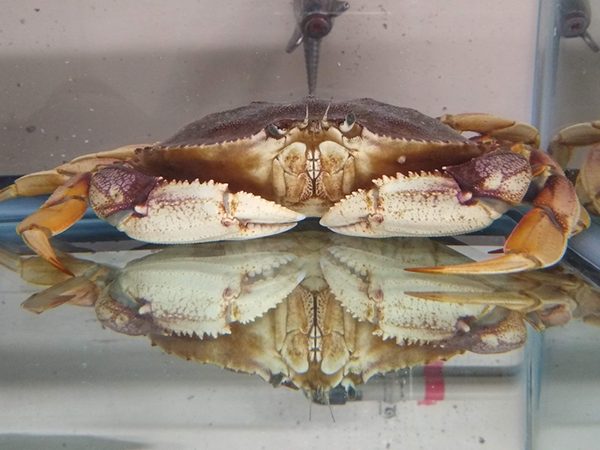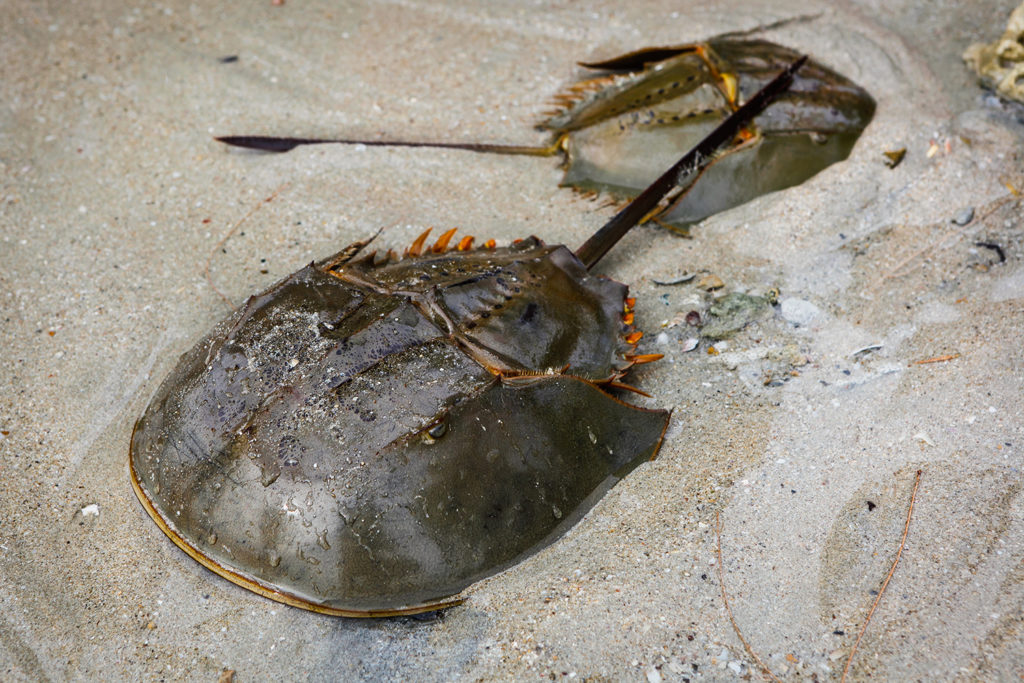Ocean acidification causes Dungeness crabs to sniff less, which may contribute to crab population collapse

A new University of Toronto study has found that climate change is causing a commercially significant marine crab to lose its sense of smell, which could partially explain why crab populations are thinning.
The research, which was published in Global Change Biology, was done on Dungeness crabs and found that ocean acidification causes them to physically sniff less, impacts their ability to detect food odors and even decreases activity in the sensory nerves responsible for smell.
“This is the first study to look at the physiological effects of ocean acidification on the sense of smell in crabs,” said Cosima Porteus, an assistant professor at the University of Toronto (UofT) Scarborough and co-author of the study along with the postdoctoral student Andrea Durant.
Like most crabs, they have poor vision, so their sense of smell is crucial in finding food, mates, suitable habitats and avoiding predators, explained Porteus. They sniff through a process known as flicking, where they flick their antennules (small antennae) through the water to detect odors. Tiny neurons are responsible for smell are located inside these antennules, which send electrical signals to the brain.
The researchers discovered two things when the crabs were exposed to ocean acidification: They were flicking less and their sensory neurons were 50 percent less responsive to odors.
“Crabs increase their flicking rate when they detect an odor they are interested in, but in crabs that were exposed to ocean acidification, the odor had to be 10 times more concentrated before we saw an increase in flicking,” said Porteus.
There are a few potential reasons why ocean acidification seems to be impacting the sense of smell in crabs. Porteus points to other research done at the University of Hull that showed ocean acidification disrupts odor molecules, which can impact how they bind to smell receptors in marine animals such as crabs.
Study: Pyridine is ‘highly toxic’ to crabs and caused 2021 die-off
For this study, the researchers were able to test the electrical activity in the crabs’ sensory neurons to determine whether they were less responsive to odors. They also discovered that they had fewer receptors and their sensory neurons were physically shrinking by as much as 25 percent in volume.
“These are active cells and if they aren’t detecting odors as much, they might be shrinking to conserve energy,” she said. “It’s like a muscle that will shrink if you don’t use it.”
Porteus said reduced food detection could have implications for other economically important species such as Alaskan king and snow crabs because their sense of smell functions the same way.
“Losing their sense of smell seems to be climate-related, so this might partially explain some of the decline in their numbers,” said Porteus. “If crabs are having trouble finding food, it stands to reason females won’t have as much energy to produce eggs.”
Dungeness crabs are an economically important species found along the Pacific coast, stretching from California to Alaska. They are one of the most popular crabs to eat and their fishery was valued at more than $250 million in 2019.
Follow the Advocate on Twitter @GSA_Advocate
Now that you've reached the end of the article ...
… please consider supporting GSA’s mission to advance responsible seafood practices through education, advocacy and third-party assurances. The Advocate aims to document the evolution of responsible seafood practices and share the expansive knowledge of our vast network of contributors.
By becoming a Global Seafood Alliance member, you’re ensuring that all of the pre-competitive work we do through member benefits, resources and events can continue. Individual membership costs just $50 a year.
Not a GSA member? Join us.
Author
-
Responsible Seafood Advocate
[103,114,111,46,100,111,111,102,97,101,115,108,97,98,111,108,103,64,114,111,116,105,100,101]
Tagged With
Related Posts

Fisheries
Can a fishermen-developed ‘banger bar’ help reduce risk of injury on crab boats?
Study finds that having a metal bar to bang crab pots against during harvest can help fishermen prevent injury.

Responsibility
NOAA awards $4.2 million to study stressors facing Dungeness crab, other marine life under climate change
NOAA will help fund a study looking into how stressors related to climate change impact Dungeness crab and marine life off the Pacific coast.

Intelligence
Crash course in crabbing spawns a budding tourism business that fosters inclusiveness
For Tia Clark, the Casual Crabbing with Tia Airbnb experience is no side hustle – it’s about representation, education and connections.

Health & Welfare
Can farming horseshoe crabs help the COVID-19 cause?
Already housing horseshoe crabs for medical purposes, researchers hope recirculating aquaculture systems will aid their coronavirus-fighting efforts.



